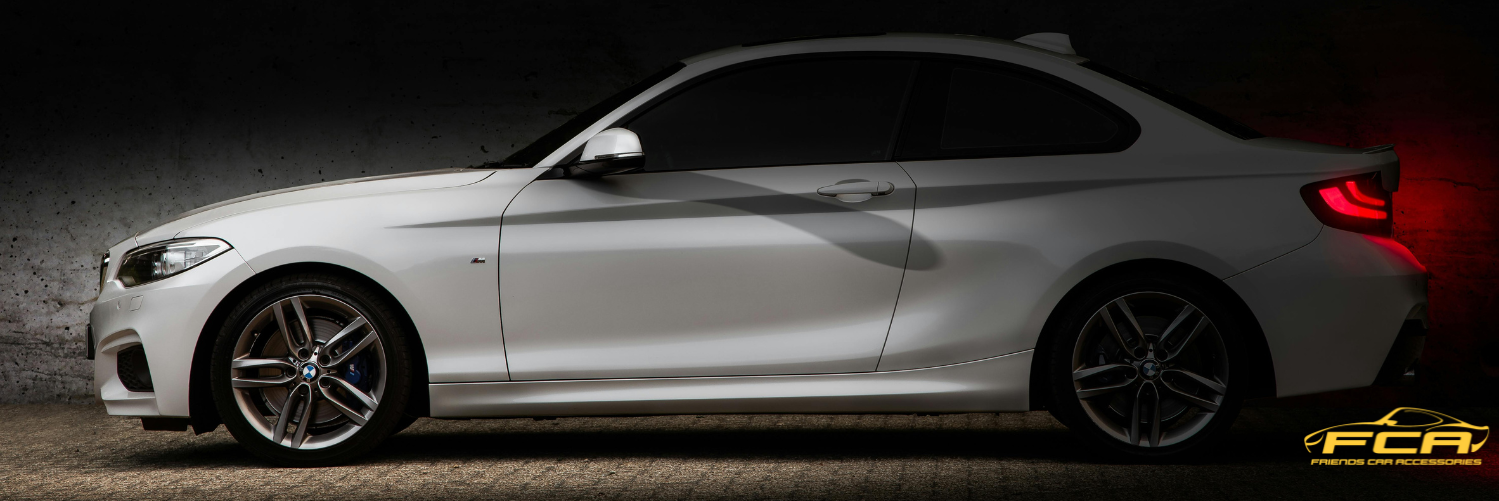
Table of Contents
Car Alloy Wheels have become an essential upgrade for enthusiasts and everyday drivers alike. When you think about giving your vehicle both aesthetic appeal and performance benefits, Car Alloy Wheels from friends car accessories often top the list. In this article, we’ll explore everything you need to know about Car Alloy Wheels—from understanding what makes them different, to selecting the right wheels alloy package, to maintenance tips that keep your ride shining. Whether you drive a compact hatchback or a luxury SUV, alloy rims can transform your driving experience. Let’s dive in!
Why Car Alloy Wheels Matter
What Are Car Alloy Wheels?
Car Alloy Wheels are wheels made from a blend of metals, typically aluminum or magnesium, offering improved strength-to-weight ratio compared to traditional steel wheels. These wheels alloy constructions reduce unsprung weight, leading to better handling, fuel efficiency, and braking performance. See Car and Driver’s guide to alloy wheel construction
Performance Boost: A lighter wheel and alloy combination decreases rotational inertia, making acceleration and deceleration more responsive.
Enhanced Aesthetics: Alloy rims often boast modern designs and finishes that equip your car with a sportier look.
Improved Heat Dissipation: Alloy materials dissipate heat better than steel, aiding brake cooling during spirited drives.
Corrosion Resistance: High-quality alloy wheel coatings protect against rust, making them ideal for varied weather conditions.
Car Alloy Wheels Benefits
1. Better Handling and Ride Quality
Upgrading to Car Alloy Wheels can dramatically improve handling. Because alloy wheels for car are lighter, they reduce the unsprung mass, allowing suspension components to react more swiftly to road imperfections. This results in a smoother ride and improved cornering stability. Tire Rack’s explanation of unsprung weight
2. Fuel Efficiency Gains
Less weight means the engine works less to rotate the wheels, leading to marginal fuel savings over time. While the difference may not be huge per trip, over thousands of kilometers, wheels alloy upgrades can contribute to better mileage.
3. Aesthetic Appeal
Alloy rims come in a variety of finishes—polished, matte, painted, or even machined accents. Whether you want a subtle shine or a bold statement, alloy wheels offer customizable options that fit your style. If you drive a Swift, consider swift alloy wheels from friends car accessories to give your car a distinctive look.
4. Heat Management
Brake performance can degrade when components overheat. Alloy wheel material disperses heat faster than steel, maintaining cooler brake temperatures under heavy braking. This is critical for safety when driving in hilly regions or during track days.
5. Durability and Corrosion Resistance
Quality alloy for car wheels often feature protective coatings (clear coats, powder coatings) that resist corrosion and chipping. This ensures long-term durability, especially in areas with road salt or coastal environments.
Understanding Types of Alloy Rims
Cast vs. Forged Alloy Wheels
Cast Alloy Wheels: Produced by pouring molten aluminum into molds. They are cost-effective and allow intricate designs but can be heavier than forged variants.
Forged Alloy Wheels: Made by compressing aluminum billets under high pressure. These wheels alloy constructions yield stronger and lighter results but come at a premium price. See a detailed comparison at Wheel-World’s cast vs. forged guide
| Type | Weight | Strength | Cost | Typical Use Case |
|---|---|---|---|---|
| Cast Alloy | Moderate | Good | Affordable | Daily driving, mild performance |
| Forged Alloy | Light | Excellent | Expensive | High-performance, track use |
Multi-piece vs. One-piece Wheels
One-piece Alloy Wheels: Most common; easier maintenance and generally lighter. These wheels alloy designs suit mainstream applications.
Multi-piece Alloy Wheels: Consist of separate rim and center sections bolted together. Offer customization in width and offset, often used in dedicated performance or luxury builds.
Wheel Sizes and Fitment
Selecting the correct size is critical. Using incorrect dimensions can affect speedometer accuracy, fuel economy, and handling. Common considerations:
Diameter and Width: Ensure compatibility with your car’s suspension and bodywork. For example, a Swift might comfortably fit 15–17 inch swift alloy wheels.
Offset and Backspacing: Proper offset maintains correct track width and suspension geometry.
Bolt Pattern: Must match the vehicle’s hub bolt pattern.
Consult a trusted installer or friends car accessories experts to confirm fitment. Many retailers provide online tools to check compatibility—just input your vehicle make/model/year to see available wheel and alloy options. Tire Rack’s bolt pattern & fitment tool
How to Choose the Right Car Alloy Wheels
Assessing Your Driving Needs
Daily Commuting: Focus on durability and comfort. Alloy wheel designs with moderate sizes (15–17 inches) are ideal.
Performance Driving: Prioritize lighter forged alloy wheels for reduced weight and enhanced handling.
Off-Road or SUV Use: Seek wheels alloy with robust constructions and protective finishes to withstand harsh terrains.
Balancing Style and Function
When browsing alloy wheel catalogs, pay attention to:
Design Patterns: Multi-spoke, mesh, split-spoke—choose a design that complements your car’s aesthetics.
Finish Options: Gloss black, silver, gunmetal, or custom colors. Remember that some finishes may require more maintenance to keep pristine.
Brand Reputation: Opt for reputable brands or aftermarket suppliers with proven track records. friends car accessories partners with trusted manufacturers to ensure quality.
Budget Considerations
Alloy rims range widely in price. Set a budget but remain flexible if a slightly higher investment yields substantial performance or longevity benefits. Installation costs, tire balancing, and potential suspension tweaks should factor into your total spend.
Checking Quality and Certification
JWL/VIA Certification: Indicates compliance with safety and performance standards. Always verify that your selected wheels alloy meet industry regulations.
Warranty and Support: Choose retailers offering warranties against manufacturing defects. friends car accessories provides warranty coverage and after-sales support for peace of mind.
Installation and Maintenance of Car Alloy Wheels
Installation Best Practices
Professional Mounting and Balancing: Always have wheels alloy fitted by certified technicians. Proper mounting prevents vibration and uneven tire wear.
Torque Specs: Use correct torque when tightening lug nuts to avoid warping brake rotors or damaging studs.
Tire Selection: Pair your new alloy car wheels with suitable tires. Consider performance tires for spirited driving or all-season tires for versatile use.
Routine Maintenance Tips
Cleaning: Regularly wash alloy rims to remove brake dust, dirt, and road grime. Use non-acidic wheel cleaners to preserve finish. For safe cleaning products and step-by-step instructions, see Popular Mechanics’ wheel cleaning guide
Inspection: Periodically check for cracks, bends, or corrosion. Early detection prevents safety hazards.
Protective Coatings: Consider ceramic or sealant coatings for extra protection against contaminants.
Seasonal Care: In winter months, clean more often if roads use salt. Rinse well to avoid corrosion.
Repairing Damaged Alloy Wheels
Minor Scratches and Scuffs: Can often be repaired with touch-up kits or professional refinishing.
Bends or Cracks: Require expert evaluation. Some minor bends can be straightened, but deep cracks may necessitate replacement to ensure safety.
Real-World Example: Upgrading a Maruti Swift with Alloy Wheels
Use Case Overview
Priya drives a Maruti Swift daily in urban traffic. She wanted both style and performance improvements. After consulting friends car accessories, she chose 16-inch swift alloy wheels in a multi-spoke design, paired with low-profile performance tires.
Steps Undertaken
Consultation: Evaluated her driving habits—mostly city commutes with occasional highway trips.
Selection: Opted for lightweight cast alloy wheels optimized for Swift: swift alloy wheels model “X-Series” from friends car accessories.
Fitment Check: Verified bolt pattern and offset suitable for Swift’s suspension geometry.
Installation: Installed by professionals with proper torque settings, balancing, and new tires.
Result: Enhanced handling around corners, improved braking response, and a refreshed modern look. Priya also noticed a slight improvement in fuel efficiency, thanks to the lighter alloy wheel setup.
This real-world example highlights how alloy wheels for Swift can elevate driving dynamics and appearance.
Comparing Steel vs. Alloy Wheels
| Feature | Steel Wheels | Car Alloy Wheels |
|---|---|---|
| Weight | Heavier | Lighter |
| Strength | Tough, dent-resistant | Strong, but may crack under severe impact |
| Aesthetics | Basic look | Stylish designs |
| Heat Dissipation | Poorer | Better |
| Fuel Efficiency | Less efficient | More efficient |
| Cost | Lower upfront cost | Higher upfront cost |
| Corrosion Resistance | Prone to rust | Better with protective coatings |
Styling Tips with Alloy Rims
Mixing Wheel and Alloy Finishes: Contrasting brake calipers with a polished rim edge can accentuate the wheel for added visual impact.
Tire Sidewall Lettering: Matching tire lettering color to the wheel finish creates a cohesive look.
Center Caps and Logos: Personalized center caps with logos or initials improve the wheel’s custom feel.
Seasonal Swaps: Some drivers keep a set of alloy rims for summer and steel wheels for winter—this preserves the finish and adapts to different driving conditions.
Enhancing Performance with Wheel and Alloy Upgrades
Suspension and Brake Synergy
Pairing Car Alloy Wheels with upgraded suspension components (e.g., performance springs, dampers) unleashes handling potential. Alloy rims reduce unsprung mass, so suspension can respond faster. Upgraded brakes breathe better with open designs in alloy wheels, maximizing cooling.
Tire Technology
Modern tire compounds work best when matched with appropriate wheel sizes. Performance tires on larger alloy rims offer more road contact and grip. However, avoid excessively low-profile tires that compromise comfort.
Aerodynamics
Certain wheel designs consider airflow management, reducing drag or directing cooling air to brakes. If track driving is a priority, seek aerodynamic-focused alloys.
Cost Considerations and ROI
Initial Investment vs. Long-Term Benefits
Purchase and Installation Costs: High-quality Car Alloy Wheels range from moderate to premium prices. Factor in tire costs, balancing, alignment, and any suspension adjustments.
Resale Value: Well-chosen alloy wheels can increase a vehicle’s resale appeal. Buyers often perceive cars with stylish wheels as better maintained.
Fuel Savings: Although incremental, reduced weight can lead to fuel savings over extensive mileage.
Maintenance Costs: Alloy wheels may require more diligent cleaning to maintain finish; however, protective coatings can mitigate long-term expenses.
Budget-Friendly Options
Consider certified refurbished alloy wheels from reputable sellers at friends car accessories. These often undergo inspection and refinishing, offering cost savings.
Start with cast alloy wheel sets before upgrading to more expensive forged options when budget allows.
Safety and Legal Considerations
Load Rating: Ensure wheels alloy have appropriate load rating for your vehicle.
Correct Fitment: Avoid aftermarket wheels that alter track width beyond manufacturer recommendations to prevent undue stress on suspension.
Tire Pressure Monitoring: After changing wheels, recalibrate tire pressure sensors if needed.
Regulations: Some jurisdictions regulate wheel modifications—check local laws regarding tire clearance, protrusion, and fender coverage.
Environmental Considerations
Recycling: At end of life, aluminum alloys can be recycled more efficiently than steel, reducing environmental impact.
Manufacturing Footprint: Forged wheels may have higher energy input during production; consider the lifecycle when choosing.
Longevity: Durable finishes reduce need for replacements, minimizing waste.
